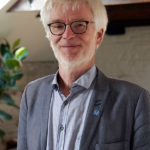Franco-German Energy Transition Week
Showcasing energy transition actions on both sided of the Rhine

How many citizens do know about the Franco-German cooperation projects around local energy transition topics? Not enough. The Energy Transition Week jointly organised with partners from both side of the Rhine showcases the various ideas and measures that bring more efficient energy to the local level. The event involves citizens and is part of a larger cross-border awareness-raising campaign.
The “Franco-German Energy Transition Week” project consists in two elements :
- The Franco-German Energy Transition Week itself
- A conference on Pioneering regions in the Energy Transition in Germany and France
The first edition of the Franco-German Energy Transition Week will take place at the end of January 2019. Its aim is to set up creative and easy-to-realize awareness-raising actions. A call for ideas, which ended in July, enabled to reward 19 cities and associations that will set up creative Franco-German actions on the energy transition. Their actions will be co-financed through this project. More cities and associations will be encouraged to organize the Week, and all actions will be listed on the project’s website.
The conference on Pioneering regions in the Energy Transition in Germany and France took place in Montreuil (Paris) on September 5-6. During the conference, nearly 140 representatives of French and German local authorities, but also national institutions (as the BMU) stressed that the challenges of energy and climate transition in both countries call for increased cooperation at all levels (national, regional, local or private sector).
Background
Following Paris Agreement, in which 195 signatory countries committed to limit global warming below 1.5°C, France and Germany can be motors of an international movement. Both Germany and France have set up national programmes to push the energy transition forward. Many initiatives have brought French and German stakeholders together in the energy transition process, but the first successful concrete partnerships at local level were made possible thanks to the TANDEM project, which started in 2014, coordinated by two European cities’ networks, Energy Cities and Climate Alliance.



